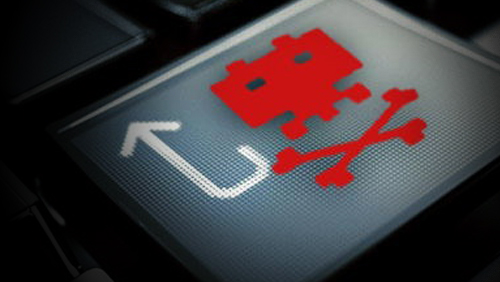 SECURITY
SECURITY
 SECURITY
SECURITY
 SECURITY
SECURITY
A government employee has been blamed for infecting the computer network of the U.S. Geological Survey with malware thanks to his predilection for surfing porn on his work laptop.
The activities of the unnamed and, not surprisingly, now former employee were detailed in a report published earlier this month by the Office of the Inspector General at the Department of the Interior. The porn-surfing employee is said to have visited more than 9,000 porn sites on his USGS laptop, at least some hosted in Russia, downloading pictures and malware along the way, including saving them to a USB stick and Android smartphone.
The malware then found its way onto the network of the Earth Resources Observation and Science Center, fortunately not an organization that hosts classified materials. The form of malware was not disclosed, with the OIG saying only that malware is often used to damage or disable computers or steal confidential information while spreading itself far and wide.
The report recommended that the USGS enforce a “strong blacklist policy” of “rogue” web domains and more closely monitor its employees’ internet usage. It added that the USGS should enact a security policy that would restrict usage of unauthorized USB devices and personally owned mobile devices.
“An ongoing effort to detect and block known pornographic websites, and websites with suspicious origins, will likely enhance preventive countermeasures,” the report noted.
Mike McKee, chief executive officer of ObserveIT Inc., told SiliconANGLE Tuesday that with nearly two-thirds of insider threat incidents caused by unintentional employee or contractor actions, it’s crucial to educate personnel on how to avoid exposing up sensitive employee, proprietary and customer data.
“Cyberattacks have become the most common, easiest, cheapest and stealthiest way to infiltrate governments,” McKee said. “This fact coupled with the shortcomings of human beings creates a vulnerable infrastructure for bad actors to attack. At the end of the day, data doesn’t leak itself, it takes people.”
Support our mission to keep content open and free by engaging with theCUBE community. Join theCUBE’s Alumni Trust Network, where technology leaders connect, share intelligence and create opportunities.
Founded by tech visionaries John Furrier and Dave Vellante, SiliconANGLE Media has built a dynamic ecosystem of industry-leading digital media brands that reach 15+ million elite tech professionals. Our new proprietary theCUBE AI Video Cloud is breaking ground in audience interaction, leveraging theCUBEai.com neural network to help technology companies make data-driven decisions and stay at the forefront of industry conversations.